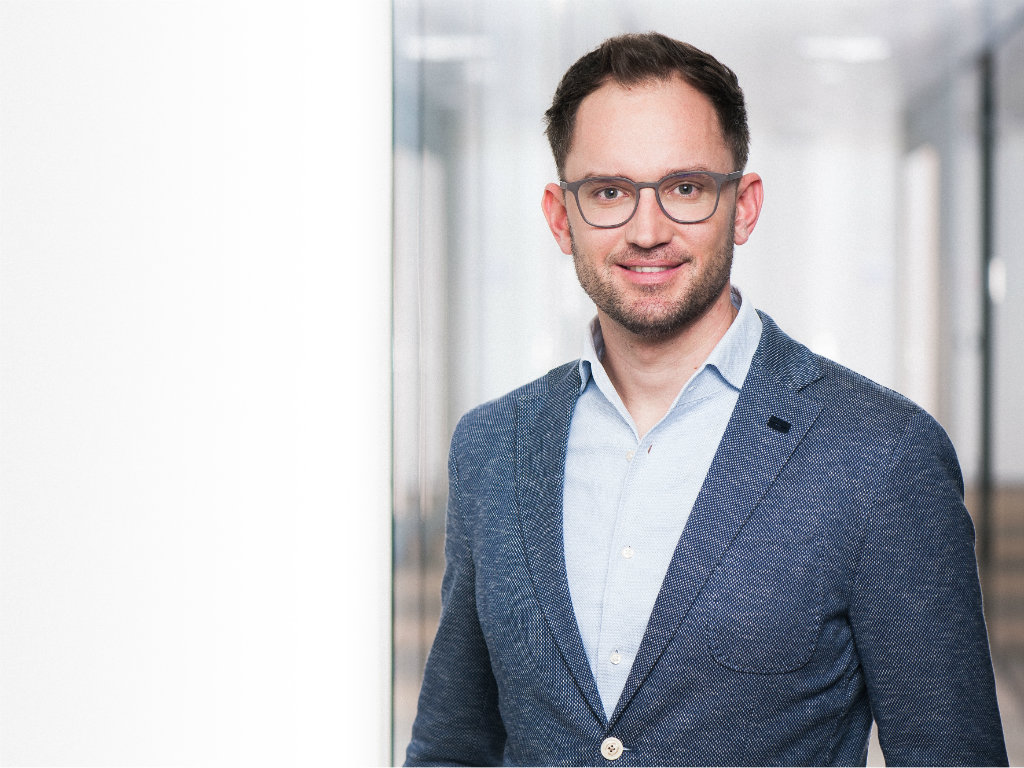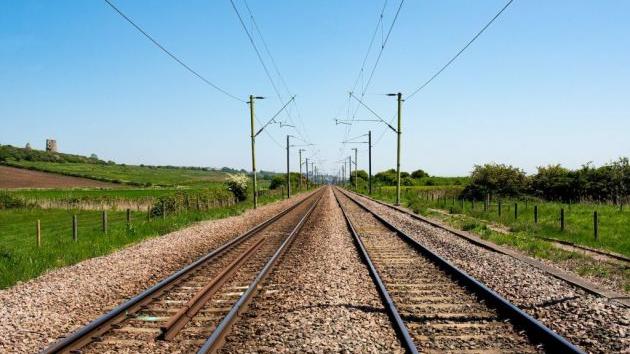Nikolaus Graeser, WienTourismus – Record-breaking tourism
 Thursday, 11.04.2019.
Thursday, 11.04.2019.
 11:50
11:50

We talked to Nikolaus Graeser of WienTourismus about what their secret is and how they manage to have such good results, perhaps the best in Europe. At the start of the conversation, he revealed that the growth of the number of tourists was primarily the result of the global trends which Vienna had made very good use of.
– The trend of city tourism has been growing in the world for a long time now. We can say now that cities are the driving engine of the tourism industry. Within this positive trend, a city needs to stand out clearly in order to be able to compete globally.
Vienna's positioning strategy is to be of premium quality in all positions and in all areas. We want to offer the best possible product, but also the optimal quality for the money invested in all categories. This pertains to luxury facilities and street food alike – simply put, we want to be the best in all segments. Our focus is always on the quality, not the quantity.
eKapija: How many tourists visit Vienna each year? Where do the most tourists come from?
– Last year, we had a total of 16.5 million overnight stays in the city, which was an increase by 6.5% compared to 2017. This trend of growth of overnight stays in Vienna has been present for several years now, and we are especially glad that the turnover at these facilities grew by 12.8%, twice as much as before. Another important factor is that 82% of the overnight stays are realized by foreign guests. The most important market segment for us is Germany, and their share in the total number of tourists has always between 22% and 24%. They are followed by local guests, which is also very important, and then tourists from the USA, France, Russia and Switzerland.
Those are the numbers, but it's very important to emphasize that the most important thing for a destination is to be directly available. This means that there are direct air lines, but also adequate options for reaching the destination by train. What we follow within our strategy is the so-called constant “air service development”. We have a special working group that deals with connections established between airports, certain airlines and potential countries where guests might come from in order to create the best possible solutions for direct flights and arrivals.
Our goal in the 2015-2020 period is to create possibilities for 20 direct lines to Vienna. However, we have already achieved this goal, as we now have 21 direct connections, and we are also planning two new direct flights – from Bordeaux and Montreal.
eKapija: Is the opening of the info desk of WienTourismus at the Schwechat Airport also a part of that strategy?
– Of course. To us, this is another important characteristic of Vienna. We believe that we are responsible not just for marketing the destination as such, but for managing it as well. That is why one of our departments deals with this question, namely, how to present the destination as well as possible. Also, we want for our first contact with Vienna's guests to be made as soon as they enter the country, at the airport, and to be at their service.
eKapija: Most overnight stays in Vienna are realized by foreign guests. How do you attract foreign tourists and what is your starting point in creating a tourism development strategy?
– If you want to attract foreign guests, you must do adequate international marketing. The first question to ask is what the possibilities of a certain destination are, how many markets can be processed at the same time and if it's best to concentrate on a smaller part of the market, that you are sure can achieve a certain degree of success. For example, globally, we are currently active in 19 different markets. I believe that clear focusing and positioning are very important for a successful marketing strategy. It is also very important, especially in this era of global growth, to stand out and highlight some of your special features and characteristics. It is also necessary to focus on certain target groups and to direct your marketing campaign at them. For us, for example, it is this premium segment, but also the LGBT population.
In order for the tourism in Vienna to be sustainable, we take care not to cooperate only with those interested in mass tourism. “Premium forever” – this is our internal slogan that we always stick to.
eKapija: Belgrade is also setting records in tourism, but it is also facing the lack of accommodation capacities, especially lower-category hotels. What is the situation like in Vienna? What are your capacities?
– We currently have 68,000 beds in the city, and several new hotels are planned to open in 2019. We are especially happy that we will have new facilities in this luxury segment, which is very important for Vienna as a city. In a few days, Hotel Andaz, a super-luxury facility within the Hyatt Group, will open.
It's interesting to note that, with an increase in the demand, our accommodation capacities grow as well. This is a cycle that has been apparent in the past few years. All this also has an enormous economic significance, because, as the number of overnight stays at a certain destination grows, it becomes more and more attractive to future investments, which further contributes to the value of economic center.
eKapija: Per-day renting of private apartments is becoming increasingly popular in Belgrade, but most of these operations are in the gray zone. Is there a similar practice in Vienna and how do you manage to control this type of accommodation?
– This sort of “sharing” economy is already there, whether we like it or not. That is why we have to find a way for everything to function. It is necessary to define clear rules and establish fair-play in the field. Of all Austrian cities, Vienna made the first step towards that when it started collecting a general residence fee from all tourists in the city. Each hotel guest must pay the residence fee, which amounts to 3.2% of the net income from the overnight stay. This rule must pertain to all other guests in this “sharing” segment as well.
In Vienna, there are around 9,000 apartments offered through this Airbnb platform, and that number is only 0.2 % of the total number of apartments in Vienna. The reason is that the City of Vienna is the biggest renter of apartments in Europe, with around 220,000 so-called municipal apartments. The rule is that those apartments cannot be rented this way.
Also, the problem is the most apparent when you see how citizens react to it. We are constantly surveying citizens in order to find out how they see tourism in Vienna and whether their attitude towards tourists is positive. The answer is always that around 94% of Vienna's citizens are satisfied with the way things are. For example, when asked whether they would mind if apartments in their environment are leased to tourists for a short period of time, 89% answered that they wouldn't.
eKapija: What are the current trends in the hotel business in Vienna? Are there global trends in the hotel business that were launched in Vienna?
– We would like to be able to claim that as well, but at the moment I can't remember any such trend in the hotel business that started in Vienna and spread further. What we are trying to do is to differentiate the existing facilities. This means that, in this luxury segment, you have the possibility of providing the guest with certain individuality and everything that meets their personal demands. I also believe that we are very successful at that. As I've already said, quality is something we are trying to maintain in each segment. Today, when everything is very transparent, mistakes can't be made, as they are no longer forgiven.
eKapija: Does Vienna, despite being a popular tourist destination, need to keep developing new features in order to attract guests?
– Of course, you always need to do something new in order to attract guests. We have been doing so for a long time. Each year, we pick a relevant topic as an attraction. This is very often tied to certain important anniversaries. Last year, it was Viennese Modern Age, where we presented the positive and the negative aspects of this era. The set topic is used to mark the beginning of the new year, and we incite all tourist and cultural organizations and institutions to focus on the topic as well. This is one of the way to attract guests and is a part of our tourist campaign.
eKapija: Nowadays, each state capital aspires to develop congress tourism. What is the situation like in Vienna?
– Vienna is traditionally considered one of the leading cities when it comes to congress tourism. There are several factors contributing to this. Primarily, there's the geographic position, and then, there's also the availability of the city and a number of places perfect for large meetings and congresses. We have a special sector which develops congress tourism, where there are constant efforts to bring as many congresses to Vienna as possible. Sometimes it takes years to bring these mega congresses, which can have more than 30,000 participants, to the city.
The congresses held in Vienna make up 12% of the total number of overnight stays in the city. Tourists from this congress segment, that is, the business segment, spend twice as much on average compared to regular guests. Last year, we set a record – the total income from congress tourism amounted to EUR 1.2 billion.
eKapija: In addition to being an attractive, record-breaking travel destination, Vienna has been pronounced the best city to live in several times. How do you manage to achieve this?
– A city which is good for its residents can be truly attractive to tourists as well. This means that maintaining the high living standard is of utmost importance for us working in destination sustainability marketing. We are currently working on a new strategy for 2025, where we primarily want to create new concepts. That is why we no longer talk about the “travel industry”, instead using the expression “visitor economy”. It is no longer enough to collect the offers and follow the demand, but you also need to establish dialogue with all those making up the stakeholder structure. These are primarily stores, and then citizens, all cultural institutions, the public transport system, but also politicians working locally.
This is a whole new approach to tourism. The central question is no longer “what can I do for tourism?”, but “what can tourism do for our city, citizens and the benefit of us all?”. I believe that this is a very important question when it comes to the topic of the quality of life an tourism and the way they are connected.
Dragana Obradovic
Most Important News
06.04.2024. | Agriculture
Preconditions for Placement of Fresh Blueberries and Dried Plums in Chinese Market Secured

16.04.2024. | News
Jovan Ciric, Leasing Director Retail MPC Properties – MPC Echo symbolizes our desire for good ideas and innovative endeavors to spread freely and bring about positive changes

16.04.2024. | News
10.04.2024. | Finance, IT, Telecommunications, Tourism, Sports, Culture
Creative Industry – What This Serbian Economy Sector Worth EUR 2 Billion Encompasses

10.04.2024. | Finance, IT, Telecommunications, Tourism, Sports, Culture
23.04.2024. | Construction, Transport
Tender for first section of Belgrade-Nis fast railroad from Velika Plana to Paracin announced

23.04.2024. | Construction, Transport
16.04.2024. | News
Economy Fair in Mostar opens – 26 companies from Serbia exhibiting

16.04.2024. | News
22.04.2024. | Industry, Transport
Serbia to develop project of “flying taxis” for EXPO with Airbus – Signing of memorandum announced

22.04.2024. | Industry, Transport


 Izdanje Srbija
Izdanje Srbija Serbische Ausgabe
Serbische Ausgabe Izdanje BiH
Izdanje BiH Izdanje Crna Gora
Izdanje Crna Gora


 News
News







